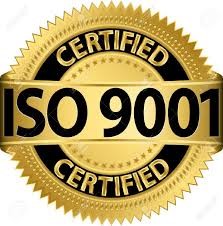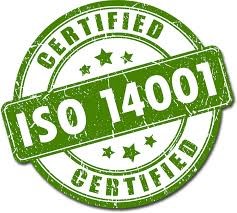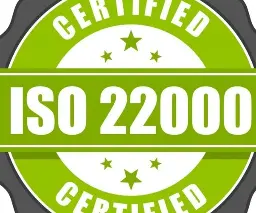ISO Consulting Services
Our highly qualified ISO consultants have practical experience achieving results that will provide the client with the following benefits:
- Effective use of resources and enhanced financial performance
- Improved risk management and protection of people as well as the environment
- Ability to deliver constant and improved services and products, thereby boosting value to customers and shareholders
LEO ISO Consultants Offer Top-notch Consultancy & Training for Various ISO Standards, Such as:
- ISO 9001 (Quality Management System)
- ISO 14001 (Environmental Management System)
- ISO 45001 (Occupational health and safety management system)
- ISO 22000 (Food Safety Management System)
ISO 9001 (Quality Management System)
ISO 9001 is entitled as the international standard that designates provision for a quality management system (QMS). It is published in 1987 by the International Organization for Standardization (ISO), a worldwide agency that includes the national standards bodies of over 160 countries in the world.
2015 is the most prestigious standard in the ISO 9001 series and the only standard in the series to which businesses can certify the value of their management system.

Benefits of ISO 9001
- Puts great importance on leadership engagement
- Helps address organizational risks and opportunities in a structured way
- Uses common structure and terms that are specifically helpful to organizations using multiple management systems, such as those for the environment, health and safety, or business stability.
- Addresses supply chain management more efficiently
- More user-friendly for service and knowledge-based organizations
ISO 14001 (Environmental Management System)
ISO 14001 Environmental Management System (EMS) is defined as a systematic framework to effectively regulate the immediate as well as long-term environmental impacts of a corporation’s products, services and processes.
ISO 14001 designates the requirements of an environmental management system that a corporation uses to improve its environmental performance. It is ideal to implement ISO 14001 in a corporation that seeks to regulate its environmental responsibilities in a systematic way, contributing to the environmental pillar of sustainability.

Benefits of ISO 14001
- Recognizes cost savings with emphasis on resource, waste and energy management
- Develop corporate image and credibility
- Quantifies, monitors and controls the impact of operations on the environment, now and in the future
- Guarantees legislative awareness and compliance
- Enhances the environmental performance of supply chain
- Protect the business, assets, shareholders and directors
- Potentially reduces public liability insurance costs for your organization
- Grows your access to business partners and potential customers
ISO 45001 (Occupational health and safety management system)
First published in March 2018, ISO 45001 is a standard designed for the management systems of occupational health and safety (OH&S). The main objective of the ISO 45001 standard is to reduce occupational injuries and diseases by promoting and protecting physical as well as mental health.
The ISO 45001 certification defines the diverse concerns required for an occupational health and safety management system that enables businesses to cater safe and healthy workplaces by avoiding work-related injury and ill health, and by proactively enhancing their occupational health and safety performance.

Benefits of ISO 45001
- Shows commitment to occupational health and safety with an internationally recognized certificate
- Boosts safety awareness and engagement among employees
- Mitigates occupational hazard incidents systematically
- Restrains business disruptions and unnecessary downtime
- Enhances brand image among clients, authorities, and investors
- Improves confidence in the fulfilment of legal and other compliance requirements
- Accomplishes alignment with other ISO standards and business systems, streamlining both inter- and intra-organization communication
ISO 22000 (Food Safety Management System)
There exists an international standard in the food industry that ensures that organizations understand what quality assurance is and why preventive food safety measures need to be implemented. This standard is called ISO 22000.
ISO 22000 brings forth many opportunities and benefits for companies in the food business. They are more open to competing in the markets. ISO 22000 is perhaps the level that the companies must achieve in order to be able to compete in the regional or global markets.

Benefits of ISO 22000
- Organizations can reduce food safety incidents and recalls by developing a food safety management system that satisfies ISO 22000:2018 requirements. Moreover, this will help them better detect and control food safety concerns.
- The certification provides a robust food safety management system and helps organizations demonstrate their commitment to identifying and eliminating food safety threats and hazards. Moreover, it boosts customer confidence in the security and caliber of the company’s products.
- Companies certified to ISO 22000:2018 can use their certification as a marketing tool to improve the company’s brand name and its products’ reputations.
- ISO 22000:2018 is a widely accepted standard that can assist organizations in adhering to national and international rules and regulations concerning food safety.
- Organizations can find and rectify inefficiencies and enhance overall operations. As a result, it can save extra costs by implementing a food safety management system.
- It enables businesses to exert more control over their subcontractors and suppliers as it exhibits dedication to adopting international and national best practices. It also results in a safer and more effective
